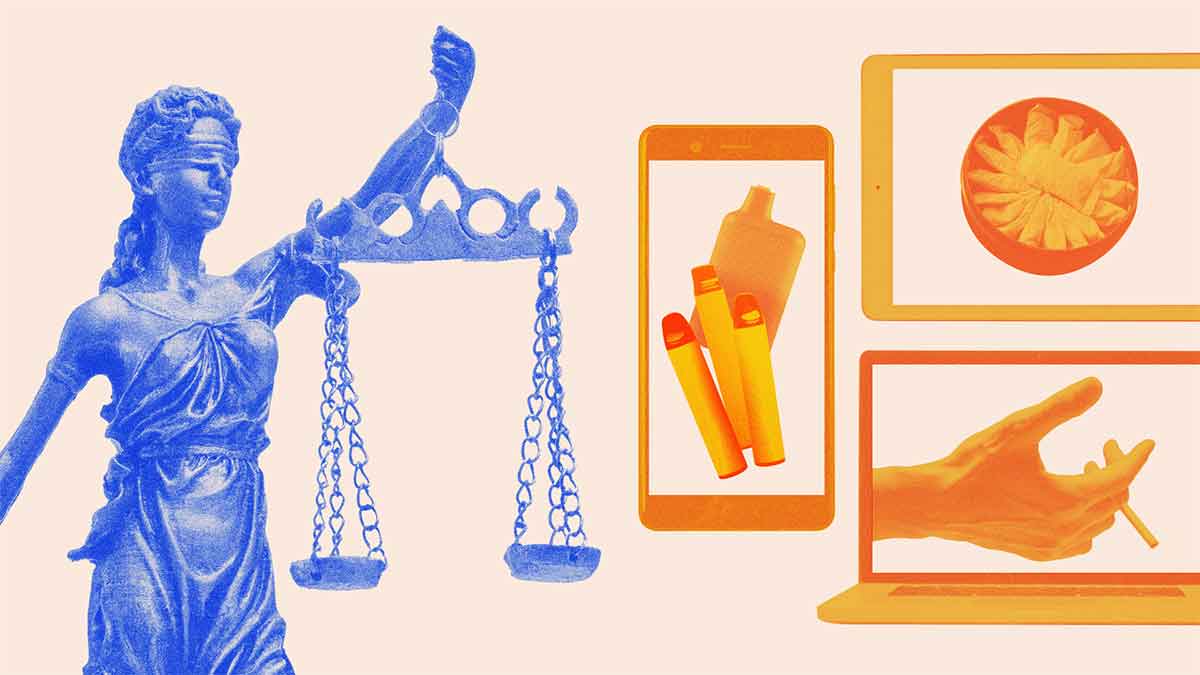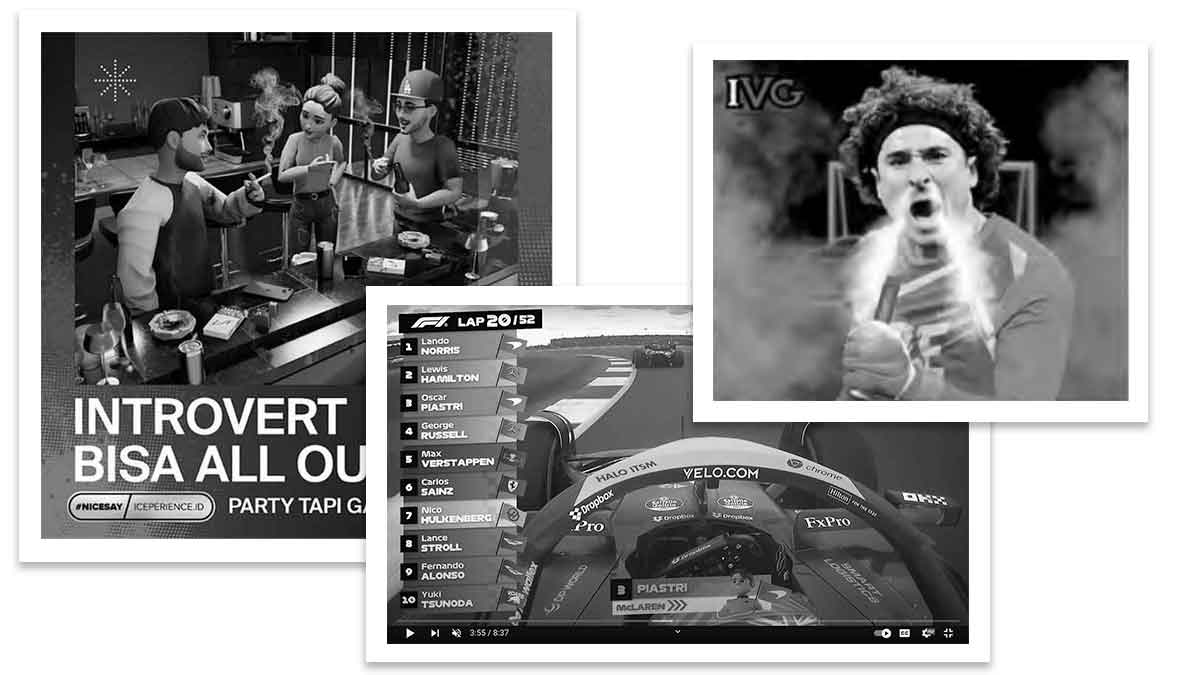- Resources
- News
-
-
Now Accepting Grant Funding Applications
Ready to tackle industry interference? Apply by February 25.
-
Get Email Updates
Sign up for STOP's emails and never miss an update on our latest work and the tobacco industry's activity.
-
Share a Tip
Do you have information on tobacco industry misconduct in your country? Let us know.
-
Now Accepting Grant Funding Applications
Industry Marketing
January 22, 2024

The tobacco industry is no stranger to digital marketing. By now, many tobacco companies have established a presence on popular social media platforms used by young people, like Facebook and Instagram. And research suggests the tobacco industry may be seeking to venture into less-charted territory—the metaverse.
The risks? The absence of comprehensive regulations in digital marketing means tobacco companies may be able to reach more young people, more easily. Digital tobacco and e-cigarette advertising that links to e-commerce and i-commerce sites may also make it easier for underage people to buy these addictive products.
But governments can take meaningful steps to protect young people. In addition to continuing to ban tobacco advertising, promotion and sponsorship (TAPS), policymakers must make sure TAPS bans are broad enough to cover the rapidly expanding range of industry products and digital platforms. Some countries are already taking action.

[India’s] new regulations expand these protections to the places many young people get their entertainment: online video streaming platforms.”
India leads the way in protecting streaming audiences from tobacco promotion
Images of tobacco use are rampant on streaming platforms. A recent Truth Initiative study found that in 2021, 60% of the 15 most popular streaming shows among 15- to 24-year-olds in the United States contained depictions of tobacco use. This is far from harmless. We know that exposure to tobacco use in movies increases the likelihood of young people starting to smoke. Research now also suggests that when young people are exposed to tobacco use on episodic content (like TV and streaming shows), their likelihood of starting to use e-cigarettes triples.
To counter this harmful influence on young people, the government of India has expanded an important piece of legislation. The country’s existing Film Rule—which requires health warnings to appear before, during and after on-screen tobacco use—used to apply only to movies and broadcast television. The new regulations extend these protections to the places many young people get their entertainment: online video streaming platforms.
Taking digital TAPS protections to the global stage
Fortunately, increased protection against digital tobacco advertising may be on the horizon in many more countries. In February 2024, the Conference of the Parties (COP) of the WHO Framework Convention on Tobacco Control (WHO FCTC) will convene in Panama. At this meeting, Parties to the FCTC will be asked to note and consider adopting an additional set of guidelines to include TAPS regulations in entertainment media in digital spaces.
While the FCTC currently includes guidelines for TAPS regulations in Article 13, these guidelines were adopted in 2008. The new set of supplemental guidelines acknowledges that the advertising and media landscape has changed significantly since then. TAPS has moved beyond television, radio, print and outdoor media—and regulations need to catch up.
The guidelines specifically address the growing problem of cross-border TAPS, which can proliferate in digital spaces. Direct tobacco and nicotine product promotion, social media influencer campaigns, sponsored event promotion, sponsored news, “infotainment” and more can be easily shared across borders, including in jurisdictions where the product being advertised is illegal.
An example of this cross-border promotion is the rampant depiction of tobacco company branding in Formula 1 racing. When tobacco companies first started sponsoring F1 teams in the late 1960s, race attendees were exposed to cars emblazoned with cigarette ads, but the reach didn’t extend far beyond the racetrack. That expanded significantly as a global TV audience tuned into broadcast coverage of F1 races, until the adoption of the FCTC in 2003 saw the end of most F1 tobacco sponsorship deals. Recent years have seen a resurgence in Big Tobacco’s involvement in the sport. Today, tobacco industry marketing on F1 cars can easily and quickly be seen by people all over the world, including children and teens, thanks to race coverage, the teams’ strong presence on social media and in e-sports and the Netflix series “Formula 1: Drive to Survive.”
The new guidelines being reviewed at COP 10 specify that TAPS bans should apply to all media, including digital platforms. They encourage governments to work with the media industry to reduce tobacco depictions in entertainment media and to require digital media platforms to enforce existing TAPS bans, among other important measures.
The key to progress: Global cooperation and enforcement
Cross-border digital tobacco marketing presents a unique challenge: the threats extend beyond the country of origin.
The guidelines state that strong enforcement of TAPS bans in the source country is the most efficient way to prevent cross-border tobacco industry marketing. But they also emphasize that cooperation between governments will be crucial. The guidelines recommend that governments work together to monitor cross-border TAPS, and cooperate with one another in enforcing regulations.
Digital media platforms should also be held accountable for allowing tobacco marketing in places where TAPS or the products being promoted are banned.
This new wave of tobacco industry advertising is spreading in the places young people go to for information and entertainment—social media, streaming platforms and, for some, the metaverse. This isn’t a coincidence. The industry knows that hooking the next generation on its addictive products is the only way it can stay in business.
That’s why governments must act now. Policymakers have the power to extend existing TAPS regulations to include new products and digital channels, and to implement new regulations for newer platforms. Time is of the essence. The sooner action is taken, the more young people will be protected from the industry’s insidious influence.





